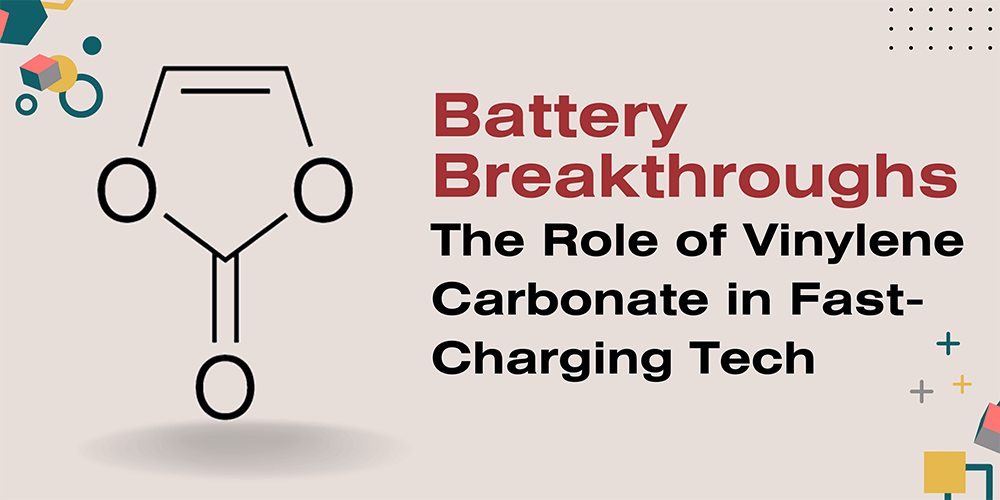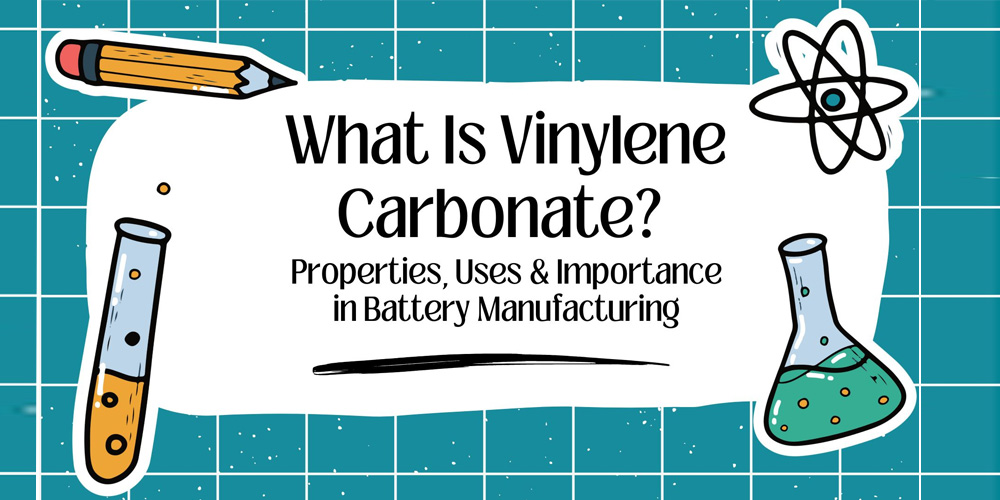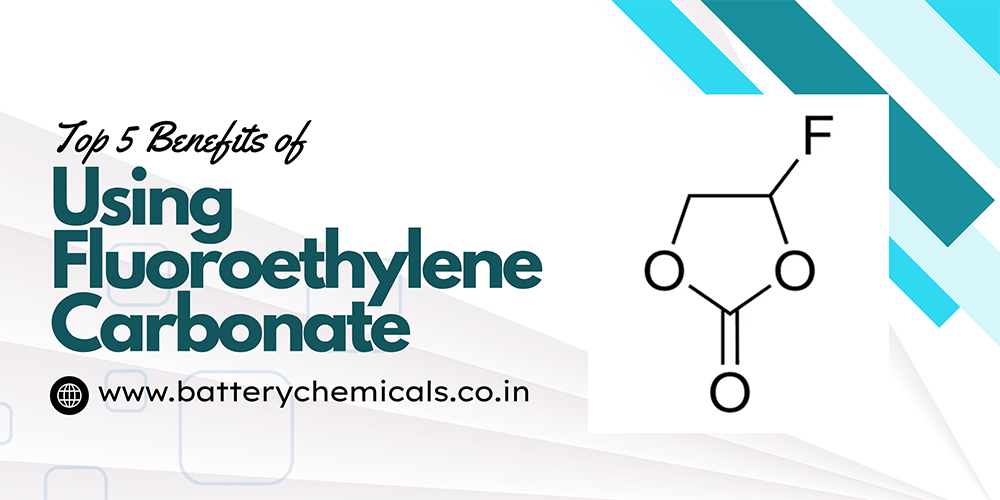
By Admin | 21 July ,2025
Battery technology is evolving rapidly, and Vinylene Carbonate (VC) is playing a pivotal role in this transformation. As demand surges for faster-charging, longer-lasting lithium-ion batteries, Vinylene Carbonate has emerged as a critical electrolyte additive that enables better performance, especially under high-voltage and high-rate conditions.
This article explores how Vinylene Carbonate enhances battery chemistry, Nova Interchem Pvt. Ltd. from a trusted Vinylene Carbonate manufacturer, and why it’s reshaping the energy storage landscape.
What is Vinylene Carbonate and Why It Matters
Vinylene Carbonate (C3H2O3) is an organic compound used as an electrolyte additive in lithium-ion batteries. Its primary function is to stabilize the Solid Electrolyte Interphase (SEI) layer on battery anodes—especially graphite.
This stable SEI layer reduces side reactions and improves cycling performance and battery safety.
Its benefits include:
- Improved electrode stability
- Enhanced low-temperature performance
- Reduction in gas generation during charge cycles
- Better lifespan of high-energy-density cells
Vinylene Carbonate becomes even more critical in fast-charging scenarios, where heat generation and degradation risks are higher. It reduces electrolyte breakdown at high voltages, helping maintain cell integrity over many cycles.
This makes VC indispensable in:
- Electric vehicles (EVs)
- Consumer electronics
- Power tools
- Renewable energy storage systems
Its role as a battery-grade specialty chemical means that quality and purity levels directly impact performance. For this reason, working with a reputable Vinylene Carbonate manufacturer is essential.
What to Look for in a Reliable Vinylene Carbonate Manufacturer
Quality matters immensely in battery-grade chemicals. Here's what sets top-tier manufacturers apart:
- Purity Level: Must exceed 99% with low moisture content
- Consistency: Every batch should meet strict quality control
- Certifications: ISO, REACH, and ROHS compliance are essential
- Production Capacity: Scalable supply for industrial clients
- Customization: Flexible packaging and labeling as per client needs
- Delivery: Timely global logistics and technical documentation
Manufacturers should also offer COA (Certificate of Analysis) and MSDS with each shipment.
If you’re sourcing for EV battery manufacturing or OEM supply chains, partner only with vendors that specialize in electrolyte-grade VC rather than general chemical producers. A strong manufacturer helps reduce costs, improve production timelines, and ensures regulatory compliance across regions.
Vinylene Carbonate is no longer just an optional additive. It’s a foundational component in designing batteries that charge faster, last longer, and perform more safely.
As demand for high-performance batteries continues to grow, companies must align with trusted Vinylene Carbonate manufacturers to stay ahead.



